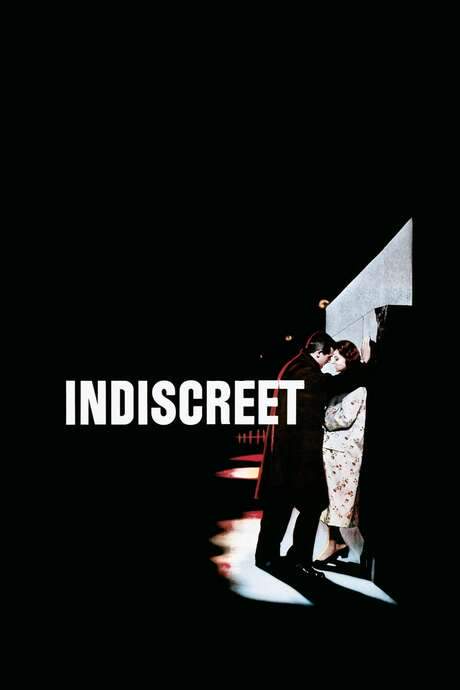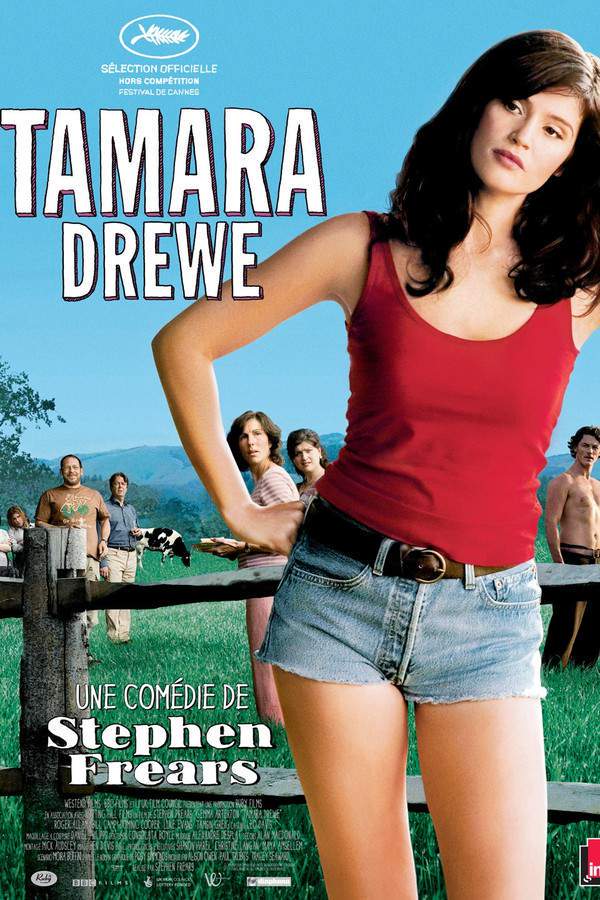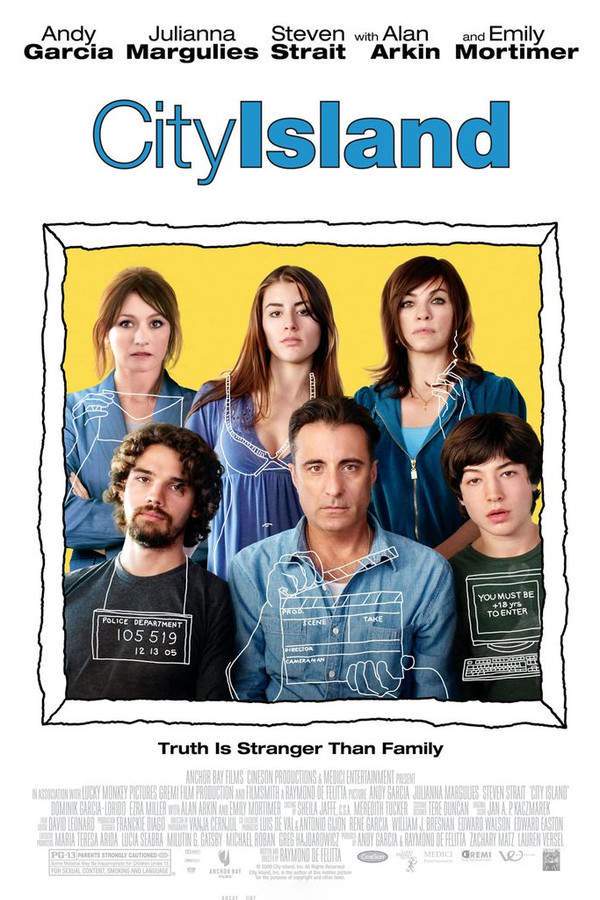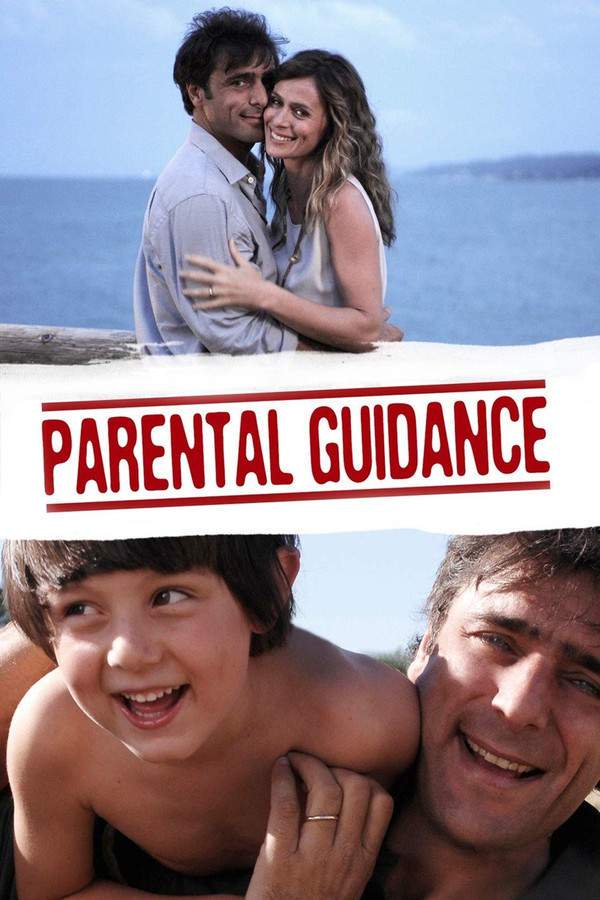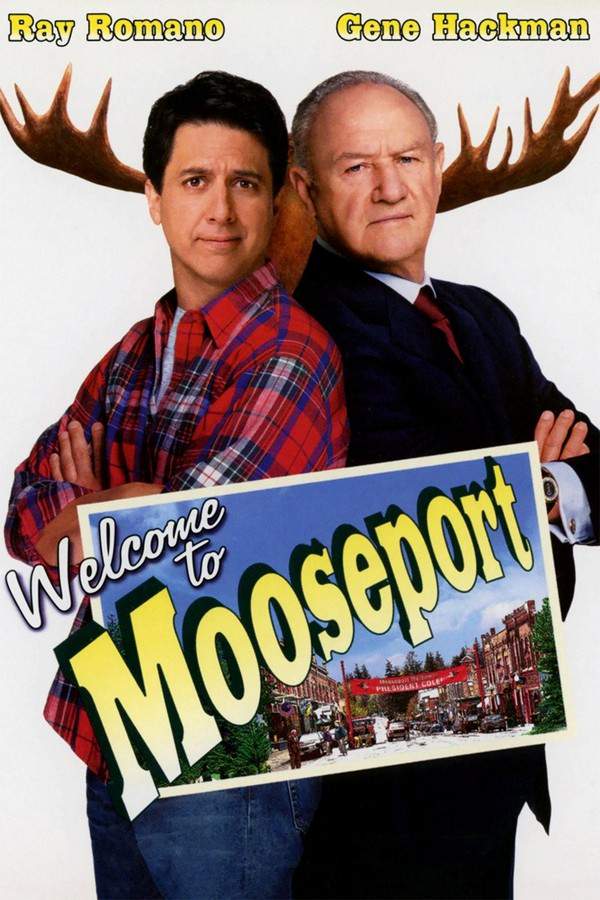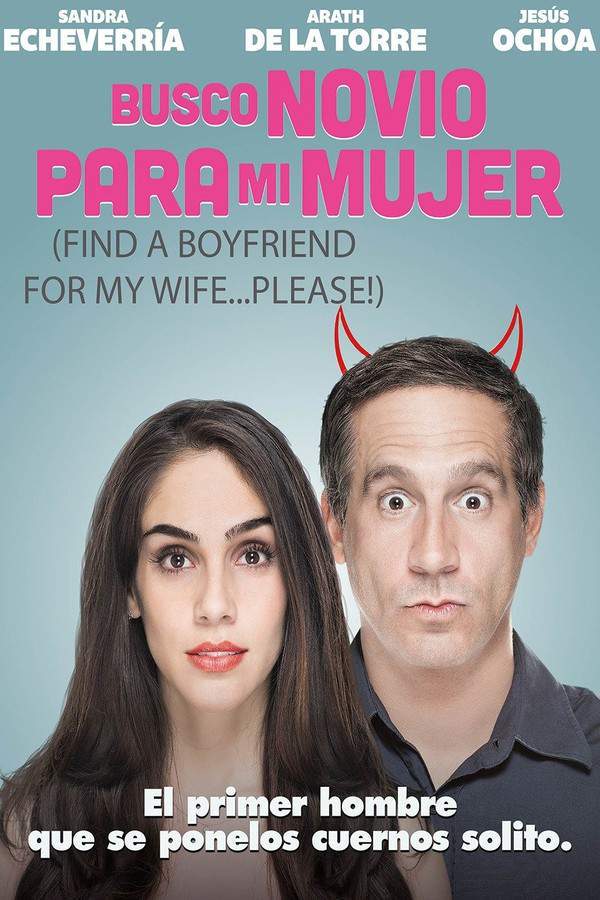
Dicen que soy mujeriego
Year: 1949
Runtime: 117 mins
Language: Spanish
Director: Roberto Rodríguez
Pedro has had many lovers but he only loves one of them, but this romance stop going on for his flirts with other women.
Warning: spoilers below!
Haven’t seen Dicen que soy mujeriego yet? This summary contains major spoilers. Bookmark the page, watch the movie, and come back for the full breakdown. If you're ready, scroll on and relive the story!
Dicen que soy mujeriego (1949) – Full Plot Summary & Ending Explained
Read the complete plot breakdown of Dicen que soy mujeriego (1949), including all key story events, major twists, and the ending explained in detail. Discover what really happened—and what it all means.
Doña Rosa Sara García rules a bustling Mexican ranch with a sharp tongue and a soft spot for family. The day kicks off with a jolt: a woman in a bed shouts, “My husband!” and a man bolts from the room, leaping out a window to reach his horse, while another woman on the street corners him with scolding and laughter, calling him a “canalla.” A kiss seals his escape, and the word haunts the air as the lover rides away. Across the village, a wedding procession winds from the cathedral, and the couple invites the priest to celebrate. The priest, ever dutiful, agrees to attend the reception that evening after a quick detour to Doña Rosa’s ranch for a huntsman’s errand—she’s sure he won’t abandon his flock when duty calls.
At the ranch, the formidable matriarch brassily grills her grandson’s keeper, Bartolo [Fernando Soto], a roly-poly servant who doubles as Pedro’s loyal sidekick. Doña Rosa is brutal yet affectionate, and her affection surfaces in small, comic cruelties—she teases, she commands, and she wields a walking stick like a baton. Pedro Dos Amantes [Pedro Infante] arrives with lipstick on his cheek, claiming he earned it from mangos rather than mischief. Doña Rosa’s tirade is relentless, but the warmth between grandmother and chosen family glimmers beneath the surface. The pair then reunite with the priest, whose politeness meets Doña Rosa’s unvarnished honesty. A moment of awkward humor follows when the priest is introduced to the “demons” of a house that humorously treats him as an outsider in his own way.
Seeking absolution in the wild, the trio heads out to hunt rabbits. Doña Rosa’s precise shot contrasts with the priest’s accidental disaster, as his shotgun misfires and takes down a donkey instead of a rabbit. The ridiculousness of the moment lands with a groan of shared embarrassment, and yet it softens into a genuine, human exchange about the limits of control and the joys of simple pleasures.
News arrives that Flor, a neighbor’s niece, is in crisis, and her uncle’s health is failing. Flor [Silvia Derbez] is a spirited, flirtatious force, and she looks to the priest for aid even as she teases Pedro, who is never far from trouble. The doctor’s grim pronouncement—that there is nothing more to be done—becomes a bitter irony when life keeps forcing them to choose between pride and care. Flor’s coming crisis threads together a web of desire and duty, and Doña Rosa uses every ounce of her experience to steer outcomes in her house and heart. When Flor learns that Pedro may be at a wedding feast, she worries about the consequences of his attention and hers in equal measure.
The wedding reception becomes a carnival of romance and rivalry. Pedro dances with one beauty after another, serenades them with a swaggering ballad about being labeled a womanizer, and receives a mocking note from “Anonimo,” a playful antagonist whose identity fuels the gossip mill. Bartolo’s mischief deepens the plot; he lingers at the edge of every scene, fanning the flames of Pedro’s escapades. In the saloon, a fiery dancer named Luciérnaga [Amalia Aguilar] electrifies the crowd with a hot performance. A patron’s bold kiss sparks a scuffle, and Pedro acts with chivalrous bravado, earning a grateful, if flirtatious, response from the dancer.
Flor’s plan to keep Pedro at bay runs into a stubborn, determined man who believes in his own charms. Flor enjoys the chase, yet she remains drawn to Pedro, even as Doña Rosa’s skepticism lingers. The music swells, and the crowd’s mood shifts as the couple’s future teeters on a knife’s edge. A dramatic turn occurs when Tucita, a small child riding on a mare brought by Doña Rosa, disarms the room with a letter declaring Pedro’s paternity in a way that rattles Flor and shocks everyone. Tucita [María Eugenia Llamas] carries a note signed “your victim,” and a photograph of Pedro dangles from a string around her neck, a haunting clue that drama and kinship are about to collide.
Dona Rosa, moved by tenderness more than temper, clutches Tucita and demands the truth. She guides Pedro into a private corridor of pain and possibility: the child could be his, or the child could be a mystery that tests their loyalties. Flor’s world cracks open; her heart bends toward Pedro, but the evidence of Tucita’s mother’s identity shakes her conviction. Flor confronts Pedro, and the air fills with a quiet ache as she questions fate, family, and the right to call someone father.
As the truth unravels, Pedro discovers a shocking deception. Luciérnaga had posed as Tucita’s mother, and Pablo [Rodolfo Landa], the town’s scheming mayor, had used her to pull Pedro into a trap. A dangerous plot to claim Tucita, to ruin Pedro, and to manipulate Flor drives the chaos. Pedro, feeling the sting of betrayal, confronts Pablo with a moral courage that surprises even himself. A tense confrontation ends with Pedro rescuing Luciérnaga from a pool of trouble and saving a life, even if it means rescuing the man who betrayed his trust.
In a climactic reckoning, Flor confronts the idea of Tucita’s paternity and the rumor that Pedro might not be the father she longs to trust. The village’s eyes watch, the people murmur, and Dona Rosa, hardened by years of watching others’ mistakes, admits her own blind spots. The couple’s future—thorny and uncertain—takes one more twist when Pablo attempts to win Flor by mocking propriety and reform. Yet Flor, aware of the damage his schemes could wreak, rejects him and chooses Pedro, vowing to marry him despite everything.
The wedding bells sparkle on the church steps, but the celebration—a symbol of union and forgiveness—takes an unexpected turn when another note from Anonimo surfaces. Pedro’s flippant response is interrupted by Flor’s declaration that she herself is Anonimo, a reveal that unsettles the crowd and punctures the rosy veneer. Tucita echoes the moment with her own exclamation of astonishment, “Válgame Dios!”—a refrain that underscores her enduring presence in Dona Rosa’s home, regardless of legal or marital status. In a final comic and affectionate beat, Dona Rosa drags an unrepentant Pedro away by the ear, reminding him—and us—that love, family, and responsibility can coexist in imperfect harmony.
This story blends tenderness with mischief, tradition with appetite, and pride with reconciliation. It celebrates the messy, exuberant heart of a village where everyone has a role, a secret, and a reason to believe in a future where love endures beyond scandal. It’s a warmly human comedy, anchored by Pedro Infante, sustained by Sara García, and nourished by the fiery spirit of Amalia Aguilar and the magnetic energy of Silvia Derbez, with a supporting chorus from Rodolfo Landa and Fernando Soto that keeps the film’s humor and heart in razor-sharp balance.
Last Updated: October 09, 2025 at 09:35
Explore Movie Threads
Discover curated groups of movies connected by mood, themes, and story style. Browse collections built around emotion, atmosphere, and narrative focus to easily find films that match what you feel like watching right now.
Mischievous Romantic Comedies like Dicen que soy mujeriego
Charming stories where love triangles and humorous deceptions lead to happy resolutions.If you enjoyed the playful romance and comedic chaos of Dicen que soy mujeriego, you'll love these movies. This section features films with similar themes of flirtation, village gossip, and charming deceptions that all lead to a feel-good, happy ending.
Narrative Summary
Stories in this thread typically follow a charming but flawed protagonist, often a charmer or womanizer, whose romantic entanglements create a web of confusion. The plot revolves around revealing secrets, confronting rivals, and a final reconciliation where true love conquers the humorous obstacles.
Why These Movies?
Movies are grouped here because they share a specific blend of light tone, romantic focus, and comedic pacing. They feature a mix of affectionate warmth and mischievous energy, ensuring the viewer is entertained by the chaos but never doubts the ultimately happy outcome.
Village Ensemble Comedies with a Found Family vibe like Dicen que soy mujeriego
Heartwarming tales where community gossip and quirky characters create a makeshift family.Looking for movies with the warm, boisterous feel of Dicen que soy mujeriego? This collection features comedies set in close-knit communities where gossip, rivalry, and affection blend to tell stories about the family we find around us.
Narrative Summary
The narrative pattern focuses on an ensemble of characters whose personal dramas and comedic misadventures are amplified by the close quarters and gossip of their community. A central event, like a wedding or festival, often brings everything to a head, solidifying the bonds of the community as a whole.
Why These Movies?
These films are united by their setting and mood. They capture the specific experience of life in a bustling community where everyone knows everyone's business, creating a warm, affectionate, and often mischievous atmosphere that feels like a large, chaotic family.
Unlock the Full Story of Dicen que soy mujeriego
Don't stop at just watching — explore Dicen que soy mujeriego in full detail. From the complete plot summary and scene-by-scene timeline to character breakdowns, thematic analysis, and a deep dive into the ending — every page helps you truly understand what Dicen que soy mujeriego is all about. Plus, discover what's next after the movie.
Dicen que soy mujeriego Timeline
Track the full timeline of Dicen que soy mujeriego with every major event arranged chronologically. Perfect for decoding non-linear storytelling, flashbacks, or parallel narratives with a clear scene-by-scene breakdown.

Characters, Settings & Themes in Dicen que soy mujeriego
Discover the characters, locations, and core themes that shape Dicen que soy mujeriego. Get insights into symbolic elements, setting significance, and deeper narrative meaning — ideal for thematic analysis and movie breakdowns.

Dicen que soy mujeriego Spoiler-Free Summary
Get a quick, spoiler-free overview of Dicen que soy mujeriego that covers the main plot points and key details without revealing any major twists or spoilers. Perfect for those who want to know what to expect before diving in.

More About Dicen que soy mujeriego
Visit What's After the Movie to explore more about Dicen que soy mujeriego: box office results, cast and crew info, production details, post-credit scenes, and external links — all in one place for movie fans and researchers.

Similar Movies to Dicen que soy mujeriego
Discover movies like Dicen que soy mujeriego that share similar genres, themes, and storytelling elements. Whether you’re drawn to the atmosphere, character arcs, or plot structure, these curated recommendations will help you explore more films you’ll love.
Explore More About Movie Dicen que soy mujeriego
Dicen que soy mujeriego (1949) Scene-by-Scene Movie Timeline
Dicen que soy mujeriego (1949) Movie Characters, Themes & Settings
Dicen que soy mujeriego (1949) Spoiler-Free Summary & Key Flow
Movies Like Dicen que soy mujeriego – Similar Titles You’ll Enjoy
Busco Novio Para Mi Mujer (2016) Ending Explained & Film Insights
Un macho de mujer (2006) Complete Plot Breakdown
Mi novia está… de madre! (2007) Complete Plot Breakdown
El Barrendero (1982) Spoiler-Packed Plot Recap
Los Verduleros (1986) Complete Plot Breakdown
Escuela para solteras (1965) Complete Plot Breakdown
Mi Mujer no es mi señora (1978) Full Summary & Key Details
El alegre divorciado (1976) Spoiler-Packed Plot Recap
Dos tipos de cuidado (1953) Full Summary & Key Details
Las cariñosas (1953) Spoiler-Packed Plot Recap
Estoy hecho un chaval (1977) Full Movie Breakdown
Yo quiero ser hombre (1950) Detailed Story Recap
Un novio para mi mujer (2022) Full Summary & Key Details
Amo tu cama rica (1992) Detailed Story Recap
Así es mi tierra (1937) Movie Recap & Themes















